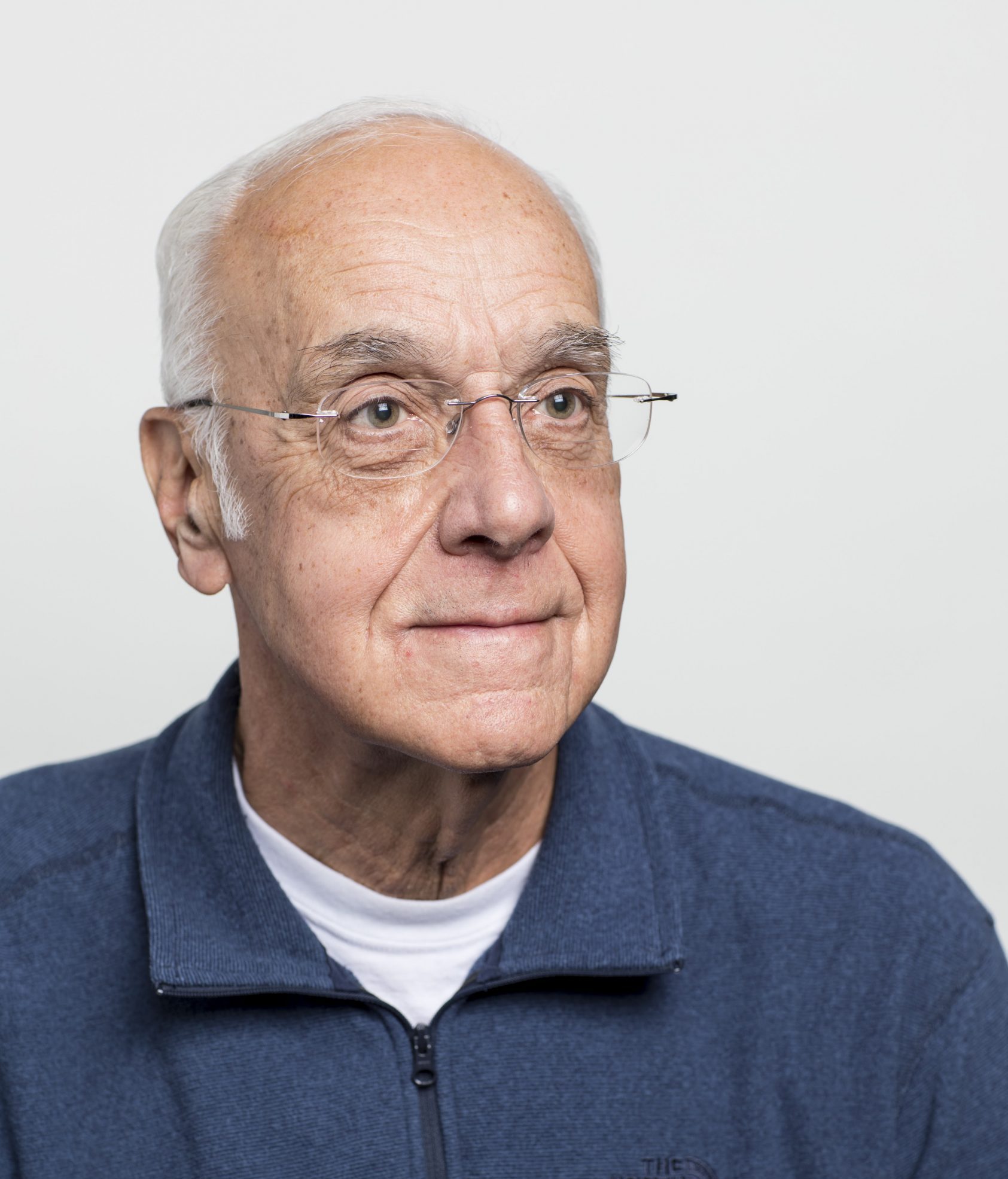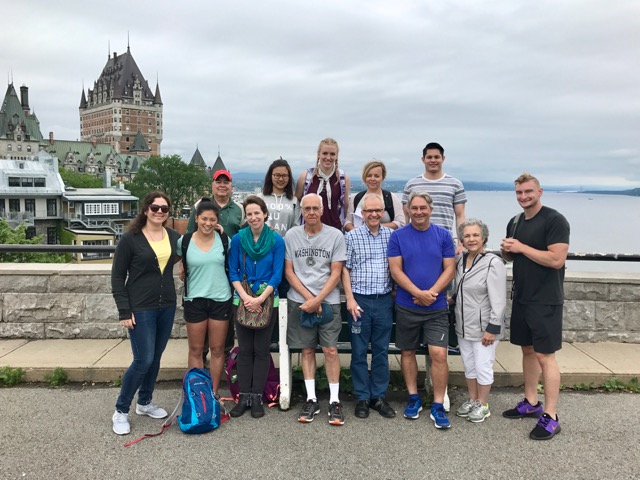We are saddened to share that Adjunct Research Professor of Landscape Architecture and Research Professor Emeritus of Urban Design & Planning, Fritz Wagner, passed away on October 7, 2021, at the age of 79.

Along with being an alumnus of the Department of Urban Design and Planning’s interdisciplinary Ph.D. program, Professor Wagner served as interim Dean of the College of Built Environments in 2006 and Chair of the Department of Landscape Architecture from 2004 to 2009. He was also an affiliate in the Canadian Studies Program here at the University of Washington.
Fritz received his Ph.D. in Urban and Regional Planning from CBE’s interdisciplinary Ph.D. program. After earning his Ph.D., he moved to the University of New Orleans where he was the founding Dean of the College of Urban and Public Affairs at the University of New Orleans, a position he held for 20 years.
In New Orleans, Fritz served eight years on the City Planning Commission, including two as its chairman. He also served as chairman of the Delta Region Preservation Commission. In that role, Wagner was instrumental in the creation of Jean Lafitte National Historical Park and Reserve. He later served as a member of the park’s advisory committee.
Professor Wagner had extensive experience and practical knowledge of urban issues facing nations around the world, especially middle eastern countries where he was actively involved as a consultant with the World Health Organization.
Working with the World Health Organization, Wagner established the WHO Collaborating Center for Health Aspects of Urban Development to investigate the impact of planning on health in big cities and small villages. The Canadian Studies Center wrote this at the time,
“through the Center, he gained a greater appreciation for the impact of planning on health, both in larger cities and smaller villages and especially in other countries. Over 15 years of travel (primarily to the Middle East), and through the promotion of healthier cities and villages, he gained knowledge about the international challenges of planning-related health issues and a better understanding of the challenges and differences in health policy in diverse sections of the world.”
He had a long history working with universities in Québec and would talk to students about urban planning in U.S. and Canadian contexts.

Wagner moved to Seattle after 26 years in New Orleans. Here he founded and served as the Managing Director for the Northwest Center for Livable Communities.
I first met Fritz shortly after completing my Master of Urban Planning while he was in the PhD program in the early 70’s. We reconnected when he returned to Seattle and the College in 2002. Most of my conversations and memories of Fritz involve casual conversations in Gould Hall. He was one of many faculty that helped me greatly as I transitioned to teaching from my career in affordable housing and real estate development.
Fritz always had time to answer questions and talk about his many experiences. He was particularly proud of his role in creating the Northwest Center for Livable Communities and the key role it played in elevating the conversation regarding compact communities, walking and biking, diverse transportation, affordable housing, open space and equity. Fritz was truly an urban thinker and ahead of his time in advancing ideas and concepts which are so integral to our current conversation.

Professor Wagner was a passionate scholar who found inspiration all around him and enjoyed the community that came along with living on a houseboat. He was deeply engaged in the historic preservation of Seattle, where he worked to make sure the ASUW Shell House was historically registered. The old ASUW Shell House, located in the shadow of Husky Stadium, was made famous by the Olympic gold-medal University of Washington Husky men’s rowing team, known as “Boys in the Boat.”
Fritz always brought such joy and enthusiasm to this office. I always saw him as he was out for a walk or on his way to work on a new project. He is one of those people who never seemed out of strength or energy and he always seemed to find ways to care and give to so many others around him. I am deeply saddened by the loss of his presence.
I had the privilege of getting to know Fritz when I moved to Seattle in 2010 in relation to our common professional interests in promoting public health as part of community design and urban planning. For several years he generously hosted an annual pizza party on his houseboat for the students in the classes we taught together, until the classes grew too large to fit. When he fully retired, I continued to visit with him regularly, often by kayaking over to his houseboat for a cup of tea. Fritz was a true gentleman and a scholar – always warm, welcoming, and thoughtful. He offered great ideas on how to solve problems ranging from student concerns to breakdowns of household appliances. He told engaging stories about topics such as his motorcycle trip across Africa in the 1960s and how he successfully worked among the politics of New Orleans where he lived for many years. I will miss him.
Fritz was a very good friend and I hope I was the same to him. Wendy and I persuaded Fritz and Margaret to buy the floating home directly across the dock from us. This meant for the last 20 years the Wagner’s were fewer than 10 or so steps from door to door.
We met for wine weekly, shared dinners and many mornings took long walks through campus and around Portage Bay. I have been thinking lately about these walks. As we began, we would often pick a topic and offer each other our respective arguments. My arguments tended to be subjective. Fritz would follow along, with some initial support to keep the thread alive, then and without notice, he would change sides. No warning. No hint that he was playing devil’s advocate. No. He would just change. And change again.Fritz seemed to be satisfied when all angles had been introduced and played with. He would typically make no effort to reach an arguable conclusion. Fritz pretty much read every paper I wrote before it went to peer review and my arguments were better for his effort. I miss him every day.
He was a Fellow of the American Institute of Certified Planners, a member of the American Planning Association and Urban Affairs Association, and had published numerous articles on urban planning and co-edited four volumes on urban revitalization.
Fritz Wagner had a remarkably successful career as a scholar, planner, and visionary leader in higher education. But what I will remember him most for are his human qualities: decency, kindness, generosity, boundless energy, and a distinct lack of self-importance or ego. He was experienced and wise and could even be wily when he needed to be, but he was also always the first to help when he saw a need. Every year for Mardi Gras, whether he was here or not, he had a King Cake delivered to the department from his favorite New Orleans bakery. This too was pure Fritz: a gift freely given for the sole purpose of bringing people together. We’ll miss that cake, and we’ll miss our friend, Fritz Wagner.
Fritz had an innate and exceptional ability to bring parties with differing and divergent viewpoints around a table to address critical environmental and cultural issues and ultimately preserve their existence and legacy, something critically lacking in today’s confrontational and divisive climate. Fritz taught me that decency is not gone, that it works and is important, reaping wonderful results for all involved. Maybe that’s why Fritz always greeted me, and all the others he touched, first and foremost with a large, warm and contagious smile.